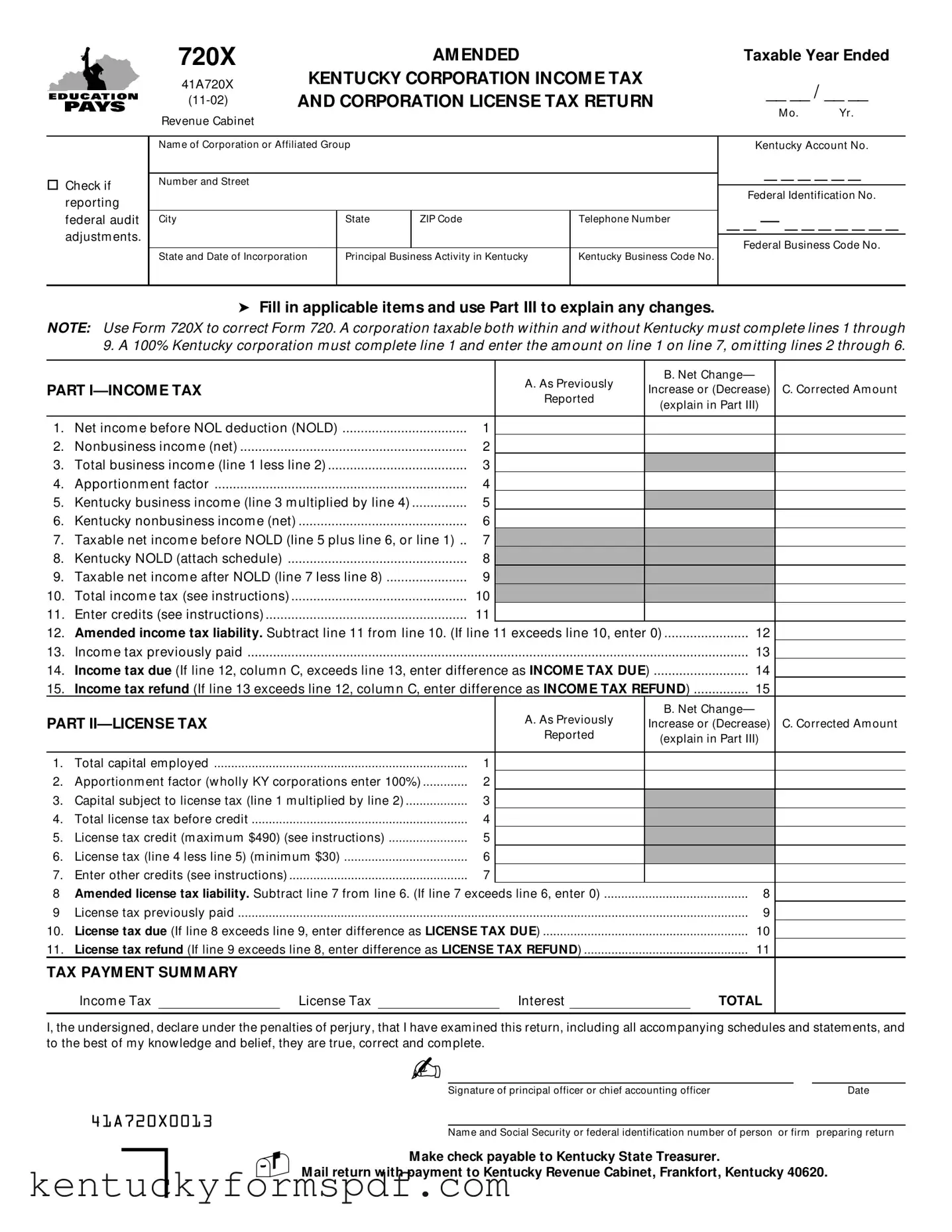What is the purpose of the Kentucky 720X form?
The Kentucky 720X form is used to report changes to the previously filed Kentucky Corporation Income and License Tax Return (Form 720). This form allows corporations to correct errors, report adjustments, or reflect changes resulting from federal audits. It ensures that the tax records are accurate and up to date.
Who needs to file the Kentucky 720X form?
Corporations that have previously filed Form 720 and need to amend their return must use the Kentucky 720X form. This includes corporations that have experienced changes in income, deductions, or other relevant financial information that affect their tax liability.
What information is required to complete the Kentucky 720X form?
To complete the form, corporations must provide details such as their name, Kentucky Account Number, Federal Identification Number, and the taxable year ended. Additionally, they need to fill out sections related to income tax and license tax, including any changes to net income, nonbusiness income, apportionment factors, and capital employed.
How do I report changes to income on the Kentucky 720X form?
Changes to income should be reported in Part I of the form. Corporations must enter the previously reported amount in Column A, indicate any increases or decreases in Column B, and then calculate the corrected amount in Column C. If the changes are due to a federal audit, the final determination must be attached.
What should I do if I have a net operating loss deduction (NOLD)?
When reporting a net operating loss deduction, enter the amount on Line 8 of Part I. It is important to attach a schedule showing the computation of the claimed NOLD. The amount reported should reflect the loss determined on the Kentucky return after apportionment and allocation for corporations taxable both within and outside Kentucky.
Is there a minimum amount for the license tax reported on the Kentucky 720X form?
Yes, the minimum license tax is $30. When calculating the license tax, if the amount due after applying any credits is less than $30, you must still report $30 as the minimum due.
What types of credits can be claimed on the Kentucky 720X form?
Corporations can claim various credits, including income tax credits and license tax credits. The form provides specific lines for entering these credits. It is essential to attach any necessary schedules or documentation that support the claimed credits.
How do I submit the Kentucky 720X form?
The completed form, along with any payments, should be mailed to the Kentucky Revenue Cabinet in Frankfort, Kentucky. Ensure that all necessary supporting documentation is included to avoid delays in processing.
What happens if I do not file the Kentucky 720X form when required?
Failing to file the Kentucky 720X form when necessary can result in penalties, interest on unpaid taxes, and potential legal issues. It is crucial to maintain accurate records and file amendments promptly to avoid complications with the Kentucky Revenue Cabinet.
Can I file the Kentucky 720X form electronically?
As of now, the Kentucky 720X form must be filed by mail. However, it is advisable to check with the Kentucky Revenue Cabinet for any updates regarding electronic filing options in the future.

